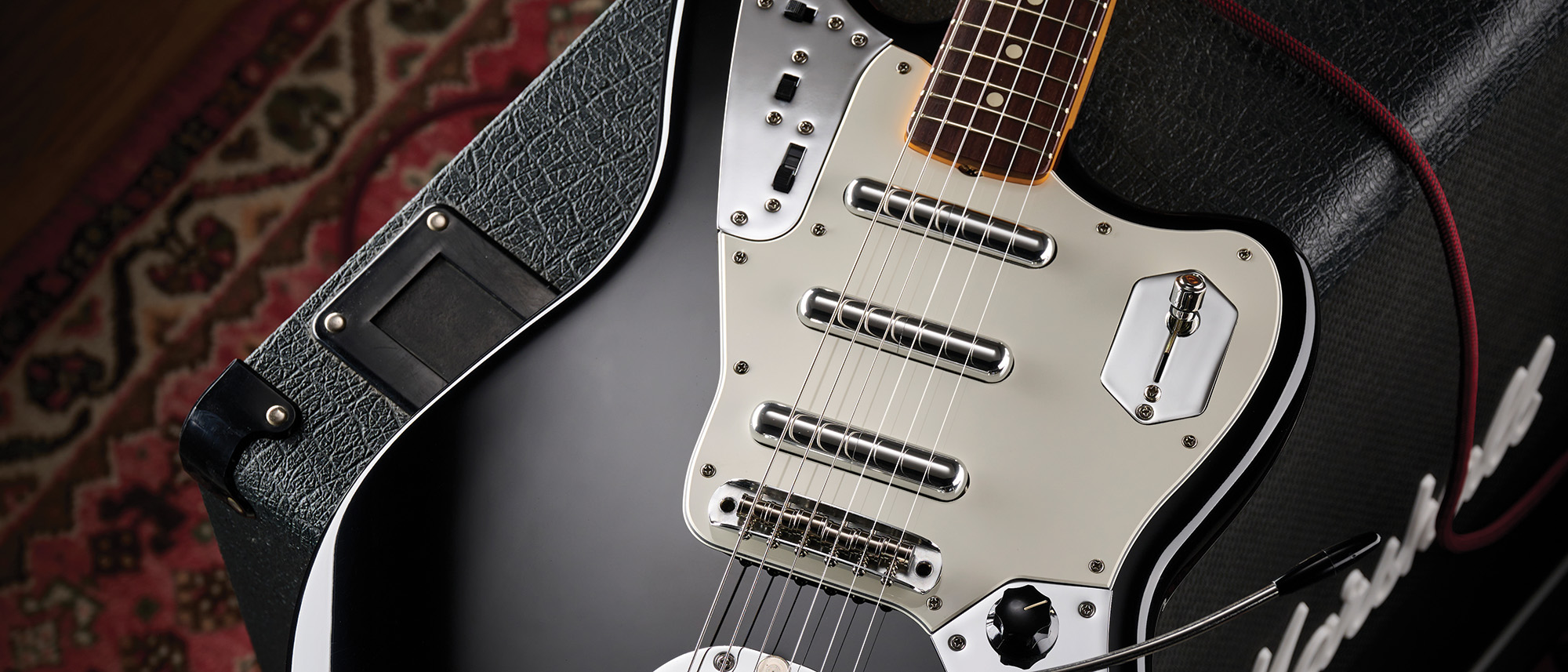“Fretless guitars are freeing. I’m trying to convince more bands to experiment with them. You can escape from whatever box you’re in”: Fretless guitars can change your perspective on the instrument – just ask Dead Poet Society’s Jack Collins
After butchering his Schecter 7-string as a teenager, Collins turned to his Frankensteined fretless to break the spell of writer’s block. He explains how it has gone on to define his monster riffs in Dead Poet Society – even if some of his ideas make his bandmates laugh at first

All the latest guitar news, interviews, lessons, reviews, deals and more, direct to your inbox!
You are now subscribed
Your newsletter sign-up was successful
Boston’s Dead Poet Society have come to be defined by their quirky use of fretless guitars, putting a fresh spin on gnarly, fuzz-drenched alt-rock riffs. When they bear their teeth, the riffs sound like Queens of the Stone Age’s evil twin, with hook-lavished indie vocals a devilish partner in crime.
But it almost didn’t end up that way – as guitarist Jack Collins’ teenage DIY guitar mod resulted in carnage. “When we were 15, me and my best friend had an idea to shave the frets off of my $400 Schecter Diamond Series seven-string that I bought from the mall,” the band founder explains.
“We were so excited. I already had a little notebook, trying to think of a whole new microtonal system for the guitar. It was super-nerdy. He took a soldering iron and shaved the frets off. Then I went to play it – and it just didn't work. I thought I’d ruined the guitar.”
Thankfully, fate had other plans for the Schecter. Collins took it with him to college where it was given a closet to sit in, neglected. Then a Hail Mary came out of the blue. “We’d formed Dead Poet Society a year or two beforehand and I had writer’s block pretty bad,” Collins says.
“I couldn’t tell you what convinced me to pull the guitar out of the closet, but I did. Almost immediately we wrote our song, Lo Air, which is which is still one of our favorites to play live.”
Now the wounded guitar has become an essential songwriting tool. “There’s looseness to it; fretless guitars are freeing. I’m trying to convince more bands to experiment with them. It’s a totally different feeling when there are no frets – you can escape from whatever box you're in.”
He warns that the results can be comically stupid – but insists perseverance pays dividends. “I like to make the dumbest sounds I can, then hone them in and see if we can make a song out of them,” he says.
All the latest guitar news, interviews, lessons, reviews, deals and more, direct to your inbox!
“Half the time when I’m writing on the fretless, the other guys are laughing at me because it sounds so goofy. But then you put it in context and you reshape it a little bit and all of a sudden goofy goes from laughable to something you’ve never felt before.”
He continues: “It’s hard for me to consider myself a guitarist, because I can’t do anything super-crazy; it’s a vehicle for me to come up with interesting sounds. I have a weird spiritual connection with that guitar.”
For a short while, Collins owned a custom-made heir to the Schecter’s throne, made by luthier Hunter Martin of Anderson Guitarworks. Tragically, however, it was stolen on tour.
“It was the sickest modded-out guitar ever,” he says, his face expressing joy and loss. “It was a fretless seven-string with gold pickups and gold inlays and it had the coolest half-Strat, half-P-bass body.
“It was white and relic’d; it was the most beautiful thing I’d ever seen. If anybody sees it, please tell me! I’m still holding out hope that it will show up on eBay or Reverb.”
Thanks to the thief, it’s the Schecter we’re hearing all over new album Fission. A slick one-two of dirty down-tuned fuzz grooves and skyscraping vocal hooks, it achieves oxymoronic harmony in being the band’s heaviest and most accessible release yet.
We got better at understanding that an idea doesn’t need to sound great when you first lay it down. It was a case of asking, ‘What is it missing?’
“We used a lot of Archetype: Abasi and Tim Henson when we were demoing out of my laptop,” Collins reveals. “We’re also hugely into effects. We have pitch-shifters, optimizers, doublers, reverbs, delays, choruses, and flangers – we use just about everything that we can think of.
“We got better at understanding that an idea doesn’t need to sound great when you first lay it down. It was a case of asking, ‘What is it missing?’ Maybe it just needs a chorus to widen it a little bit, or it needs to be panned differently.”
When he demoed 81 Tonnes at home, he recalls, it felt “really mediocre” to him. “Then I put some chords on it, and they were totally the wrong chords,” he says.
“But instead of what I would usually do a year or two ago, where I’d think it was a waste of time and walk away, I spent four or five hours trying different things out. By the end of the night, I had pretty much the whole chorus as it is now.”
During that workflow, even the smallest details of a riff are discussed: “Right down to what position we play it in,” he says. “If it’s a slide or a bend, or how hard or soft you play it, it matters.
“I play a seven-string Strandberg Boden Standard for my fretted songs, and I find if you’re riffing on that seventh string north of the 12th fret, it has a completely different vibe than playing the same note on the sixth string. A lot of times the intonation can get a little wobbly, but it can feel a lot better.”
They took their demos to producer Anton DeLost, who introduced the band to a secret weapon. “He put the guitars through a Universal Audio OX Box amp head,” Collins says. “It simulates the breaking up of distortion. It made the guitars sound so much stronger and more sustained.
“Every time I plug into an amp simulator, I find that when you hit a low note it won’t sustain for long and almost sounds too dynamic. This thing was insane. It was like a compressor in the way it strengthened the guitar tones – it made them feel alive and real.”
Being very DIY in the past, we’ve often sounded way better live than on record. Now we’re conscious of it being the other way around
However, Collins admits there are downsides to having a record that sounds as big and hairy as Fission.
“Being very DIY in the past, we’ve often sounded way better live than on record,” he says. “Now we’re conscious of it being the other way around. It’s intimidating as hell because the record sounds incredible.”
To combat those issues, Collins and co-guitarist Jack Underkofler have spent months re-routing their amp modelers – a Neural DSP Quad Cortex and Line 6 Helix respectively. “We’ve been going crazy with them, building each track like DAW sessions.
“A lot of tracks on the album have four different guitar tones happening at once. We soloed each track and tried to recreate them, so that four guitars come out of one signal chain. I think it’s the coolest thing that you can do with an amp simulator and it’s still real.”
Collins admits that only time will tell if their quad stacking translates onto the stage. “Live, it’s a different experience. It’s not about it sounding exactly like the record, so long as it feels big. It’s hard: you’re trying to try to dial in the tones and get everything to sound perfect – but at the same time, what is ‘perfect?’”
- Fission is out now via Spinefarm.
A freelance writer with a penchant for music that gets weird, Phil is a regular contributor to Prog, Guitar World, and Total Guitar magazines and is especially keen on shining a light on unknown artists. Outside of the journalism realm, you can find him writing angular riffs in progressive metal band, Prognosis, in which he slings an 8-string Strandberg Boden Original, churning that low string through a variety of tunings. He's also a published author and is currently penning his debut novel which chucks fantasy, mythology and humanity into a great big melting pot.

